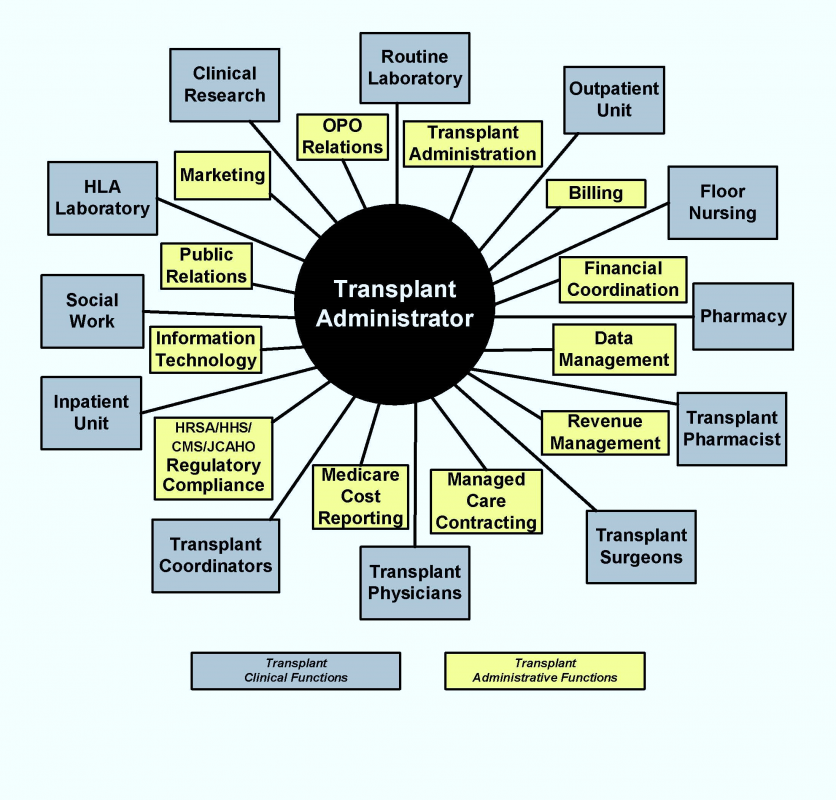Of nearly 5,600 acute care hospitals in the United States, approximately 250 of the hospitals have transplant programs, which account for less than 5% of the acute care hospitals in the United States. This statistic documents the highly specialized nature of transplant and the responsibility of the 250 transplant hospitals to provide access to organ transplantation for the United States.
Organ transplantation is the most intensely monitored medical specialty in the United States, regulated by the Health Resources and Services Administration (HRSA) of the United States Department of Health and Human Services. The Organ Procurement and Transplantation Network (OPTN) established under the National Organ Transplant Act of 1984 is the unified transplant network administered by the United Network for Organ Sharing (UNOS) under contract with HRSA. Given the heavy regulations and complexity of running a transplant program, transplant administration has become a recognized discipline and specialty in transplant. The evolution of this defined discipline of transplant administration has occurred over the past 25 years. The discipline of transplant administration has become an integral and critical part of the transplant enterprise. The OPTN and UNOS recognized Transplant Administrators by the implementation of an ad hoc committee in 1992, followed by approval of a standing Transplant Administrators Committee in the OPTN/UNOS membership structure and bylaws in 1997.
Like any other health care service line, transplant programs focus on growth, market share, cost containment, revenue management and generating margin for the transplant program and hospital. The Transplant Administrator must be a proficient leader and multi-skilled practitioner in finance, Medicare, marketing, managed care contracting, quality, program management, communications, business development, organizational effectiveness and UNOS organ allocation and regulatory compliance. The multi-disciplinary responsibilities of a Transplant Administrator are shown in Figure 1. Not only must there be responsibility and accountability to and for a multi-disciplinary clinical team, but also to a multi-disciplinary transplant business team. The Transplant Administrator is at the hub of the multi-disciplinary clinical and business structure, guiding and facilitating multiple efforts in this highly specialized enterprise.
Transplant Administrator's Areas of Multi-Disciplinary Responsibility and Accountability

